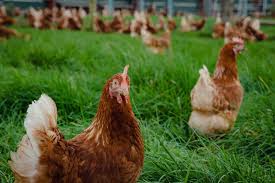Thailand foodservice industry shifts to cage-free eggs
The growing ethical awareness among the consumers has led the Thailand foodservice industry to increasingly adopt sustainable practices. Many foodservice operators are opting for cage-free eggs and restaurants are placing greater importance on animal welfare.
This shift not only addresses the evolving consumer expectations but also aligns with global food standards, reflecting the industry’s commitment to ethical sourcing and sustainability.
Consumers believe animals deserve respectful treatment, with the confined, restrictive conditions of battery cages widely deemed cruel. In contrast, cage-free systems provide hens with more freedom to move and express natural behaviors, aligning with ethical values.
Cage-free systems can have a smaller environmental footprint when managed responsibly. Consumers prioritising sustainability consider cage-free eggs to help reduce environmental harm and support sustainable farming.
Moreover, sustainable feed practices and reduced reliance on antibiotics contribute to a healthier ecosystem and lower overall resource usage. Restaurants adopting this standard are not only supporting the humane treatment of animals but are also contributing to healthier food production processes.
Capitalising on these trends, various foodservice operators in Thailand, such as Tap Home Cook and Zen Corporation Group have committed to only use eggs from cage-free hens.
Cage-free environments are believed to help produce healthier eggs with a lower risk of contamination, particularly salmonella, than eggs from caged systems. Consumers often associate better animal welfare practices with higher food quality and safety.



